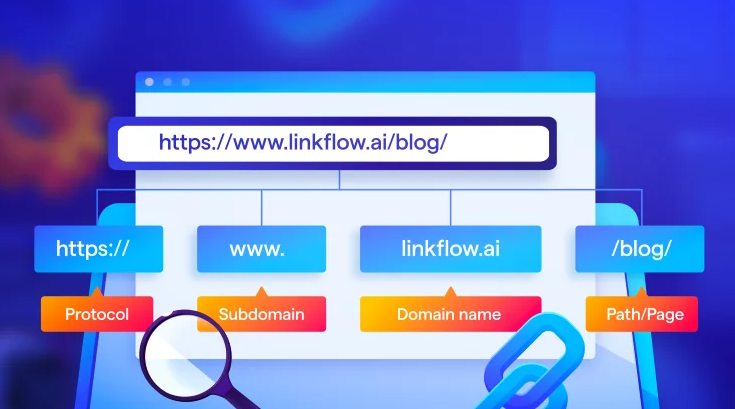
Search engine optimization plays a crucial role in driving organic traffic to e-commerce websites. While many factors contribute to effective SEO for ecommerce, one often overlooked aspect is the optimization of URLs. URL optimization can significantly impact a website’s visibility and search engine rankings. In this article, we will explore the importance of creating SEO-optimized URLs for e-commerce success and provide valuable insights and best practices to help you achieve better search engine visibility and attract more potential customers.
Table of Contents
- Why are SEO-Optimized URLs important?
- Incorporating relevant keywords in URLs
- Understanding URL structure for e-commerce websites
- Keeping URLs concise and descriptive
- Using hyphens to separate words in URLs
- Avoiding dynamic parameters in URLs
- Implementing canonical URLs for e-commerce websites
- Optimizing URLs for mobile devices
- Implementing HTTPS for secure URLs
- Utilizing breadcrumbs in URLs
- Optimizing URLs for international e-commerce websites
- Monitoring and updating URLs regularly
- Measuring the impact of SEO-optimized URLs
- Creating user-friendly URLs
- Frequently Asked Questions
- What are SEO-optimized URLs?
- Why are SEO-optimized URLs important for e-commerce websites?
- Should I include keywords in my URLs?
- Can I use special characters in my URLs?
- Is it better to use hyphens or underscores in URLs?
- What is URL canonicalization, and why is it important?
- Should I use dynamic or static URLs for my e-commerce website?
- Conclusion
Why are SEO-Optimized URLs important?
SEO-optimized URLs are essential for improving the visibility of e-commerce websites in search engine results pages (SERPs). When search engines crawl and index web pages, URLs serve as important indicators of a page’s relevancy and topic. Optimizing URLs with relevant keywords and descriptive language helps search engines understand the content and context of a web page, leading to better rankings in search results.
Incorporating relevant keywords in URLs
Keywords play a vital role in SEO for ecommerce, and incorporating them in URLs can enhance a website’s visibility. Including relevant keywords in the URL helps search engines associate the page with specific search queries. However, it’s important to strike a balance and avoid keyword stuffing, which can lead to penalties from search engines.
Understanding URL structure for e-commerce websites
A well-structured URL provides both search engines and users with valuable information about the page’s content. An optimized URL structure typically includes the primary keyword, is concise, and provides a logical hierarchy of information. For e-commerce websites, it’s important to include relevant category and product information in the URL structure.
Keeping URLs concise and descriptive
Concise and descriptive URLs are easier for users to read and understand. A clear URL structure provides valuable information about the page’s content, making it more likely for users to click on the link in search results. Avoid using long, complex URLs with unnecessary parameters or numbers that don’t provide meaningful information.
Using hyphens to separate words in URLs
When creating URLs, it’s best to use hyphens (-) to separate words instead of underscores or spaces. Hyphens are considered word separators by search engines and help improve the readability and SEO-friendliness of URLs.
Avoiding dynamic parameters in URLs
Dynamic parameters, such as session IDs or tracking codes, can make URLs long, complex, and difficult for search engines to interpret. It’s best to avoid using dynamic parameters in URLs or utilize URL rewriting techniques to convert dynamic URLs into user-friendly and SEO-friendly static URLs.
Implementing canonical URLs for e-commerce websites
Canonical URLs are essential for e-commerce websites that have multiple versions of the same content. Canonical tags help search engines identify the preferred version of a webpage and consolidate the ranking signals to avoid duplicate content issues. By implementing canonical URLs, you can ensure that search engines index and rank the desired version of your web pages, improving the overall SEO performance of your seo for ecommerce site.
Now, regarding the phrase “business service,” it appears to be unrelated to the topic of canonical URLs and SEO for e-commerce. However, if you’d like more information or have specific questions about business services please feel free to ask, and I’ll be happy to provide information or assistance.
Optimizing URLs for mobile devices
With the increasing use of mobile devices for online shopping, it is crucial to optimize URLs for mobile users. This includes creating mobile-friendly URLs that are concise, easily readable, and compatible with responsive design. Mobile-optimized URLs contribute to a positive user experience, which can lead to higher engagement, conversions, and improved search engine rankings.

Implementing HTTPS for secure URLs
Website security is a critical factor in SEO, and implementing HTTPS encryption for your e-commerce URLs is essential. HTTPS not only protects sensitive customer information but also improves your website’s trustworthiness and credibility in the eyes of search engines. Websites with HTTPS receive a ranking boost and are favored in search results compared to their non-secure counterparts.
Utilizing breadcrumbs in URLs
Breadcrumbs provide users with a clear navigation path within a website and also benefit SEO. Including breadcrumbs in your URLs can improve user experience by helping visitors understand their current location on the site and facilitating easier navigation. Search engines also value breadcrumbs as they provide additional contextual information about the page, making it easier to crawl and index your website’s content.
Optimizing URLs for international e-commerce websites
If your e-commerce business caters to international markets, optimizing URLs for different languages and regions is crucial. Implement hreflang tags to signal to search engines the language and geographical targeting of each URL. This ensures that users searching in specific languages or locations are directed to the appropriate version of your website, enhancing user experience and SEO performance.
Monitoring and updating URLs regularly
URL optimization is an ongoing process. It’s important to monitor the performance of your URLs regularly, track changes in search engine algorithms, and adapt your optimization strategies accordingly. Keep an eye on your website’s analytics, identify URLs that underperform, and make necessary improvements to enhance their visibility and ranking potential.
Measuring the impact of SEO-optimized URLs
To measure the impact of SEO-optimized URLs on your e-commerce success, utilize various analytics tools. Monitor key metrics such as organic traffic, search engine rankings, click-through rates, and conversions associated with URLs that have undergone optimization. This data will help you assess the effectiveness of your URL optimization strategies and make informed decisions for further improvements.
Creating user-friendly URLs
User experience is a key aspect of successful e-commerce websites. When creating URLs, prioritize user-friendliness by making them intuitive, easy to understand, and relevant to the page content. Use simple language and avoid using unnecessary characters or symbols that may confuse users. User-friendly URLs contribute to higher click-through rates and engagement, positively impacting your website’s SEO performance.

Frequently Asked Questions
What are SEO-optimized URLs?
SEO-optimized URLs are website addresses that are specifically designed to enhance search engine visibility. These URLs are structured in a way that helps both search engines and users understand the content of the page. They are concise, descriptive, and include relevant keywords.
Why are SEO-optimized URLs important for e-commerce websites?
SEO-optimized URLs play a vital role in improving the search engine ranking of your e-commerce website. They provide valuable information to search engines about the content and relevance of your web pages. Additionally, user-friendly URLs are more likely to be clicked on and shared by users, increasing organic traffic to your website.
Should I include keywords in my URLs?
Yes, including relevant keywords in your URLs can significantly improve their SEO value. Keywords in URLs provide search engines with additional context about your page’s content. However, make sure to keep the URL natural and avoid keyword stuffing.
Can I use special characters in my URLs?
It is generally recommended to avoid special characters, such as question marks or ampersands, in URLs. Special characters can cause issues with URL encoding and may lead to confusion for both search engines and users. Stick to using alphanumeric characters, hyphens, and slashes.
Is it better to use hyphens or underscores in URLs?
Using hyphens is preferred over underscores in URLs. Search engines treat hyphens as word separators, while underscores are interpreted as connectors. Hyphens make the URL more readable and help search engines recognize separate words.
What is URL canonicalization, and why is it important?
URL canonicalization refers to the process of selecting the preferred URL when multiple URLs with similar content exist. It helps prevent duplicate content issues and consolidates ranking signals for a single URL.
Should I use dynamic or static URLs for my e-commerce website?
In general, it is recommended to use static URLs for better SEO and user experience. Static URLs are more user-friendly, easier to understand, and can contain relevant keywords
Conclusion
Creating SEO-optimized URLs is a fundamental aspect of achieving e-commerce success in the digital landscape. Remember to prioritize user experience, optimize URLs for mobile devices, ensure website security with HTTPS, and regularly monitor and update your URLs. By implementing these strategies, you can enhance your website’s SEO performance, attract more organic traffic, and increase your chances of success in the competitive e-commerce market.







